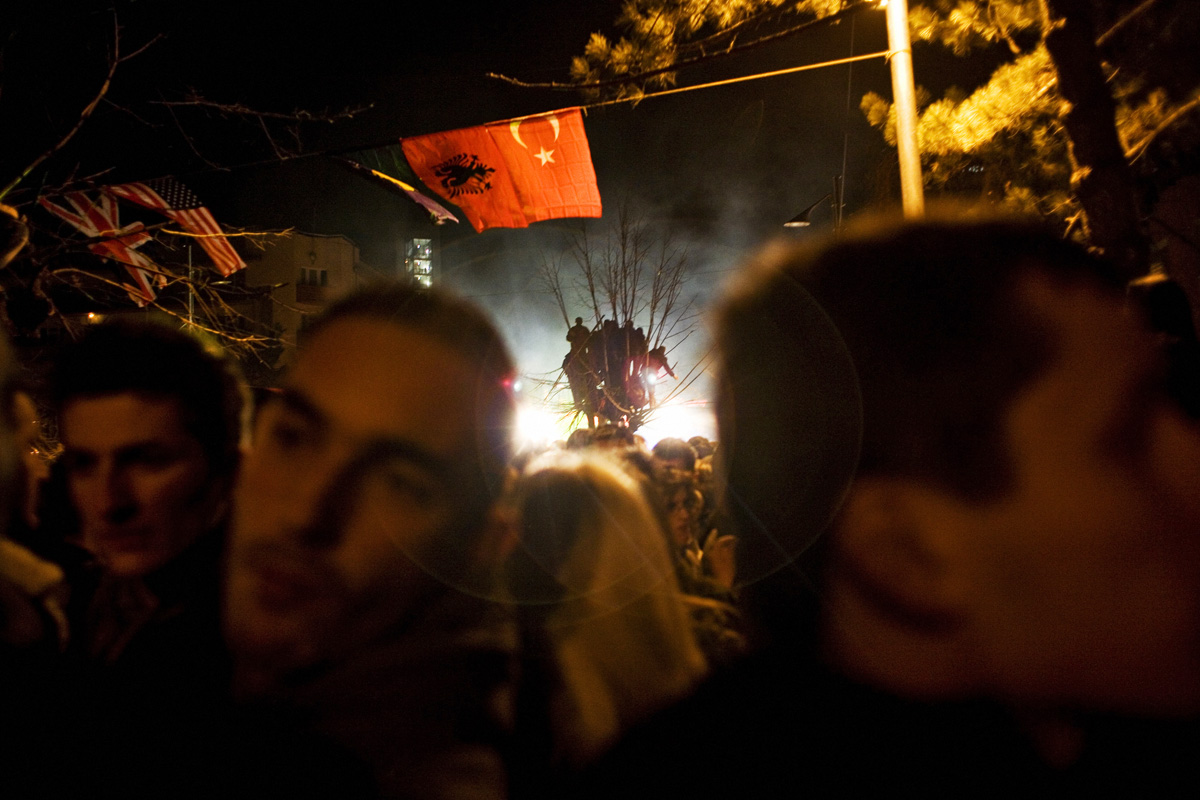Kosovo: not up to NATO
The U.S., EU and now NATO have long acted in Kosovo as if they had the authority to act for the United Nations. Belgrade would be right to act without NATO’s permission. It’s not up to NATO but to the UN.
| Suggested Reading | Conflict Background | GCCT |
By Gerard Gallucci
Tensions over northern Kosovo continue. The Washington Post noticed in a January 12 editorial. The Post highlighted the negative role being played by Albin Kurti and urged that the U.S. “make clear to Kosovo’s leaders that NATO’s willingness to keep its forces on the ground isn’t indefinite. Continued Western military support for Kosovo should be contingent on signs of progress toward a peace settlement that grants greater self-government for Serb communities.” Meanwhile, Serbia’s request for permission from NATO to return some security forces to Kosovo – as allowed by UN Security Council Resolution 1244 – was rejected.
Belgrade’s decision to seek NATO approval was perhaps prudent – the choice was to act unilaterally – but legally unnecessary. NATO is not the arbiter of UNSCR 1244. NATO is not even mentioned in the resolution. UNSCR 1244, Section 5, authorizes “deployment in Kosovo, under United Nations auspices, of international civil and security presences, with appropriate equipment and personnel as required.” NATO is in Kosovo only under the UN mandate and is subject to it. The same goes for the EU presence that – along with the U.S. – assumed a mentoring role over the Pristina government. The residual UN mission in Kosovo (UNMIK) would be perhaps the right place for Belgrade to seek permission, not NATO. Either that or taking the issue to the Security Council directly.
When Kosovo declared independence in 2008, it did not seek permission from the United Nations, NATO, the EU or the U.S. (at least not formally). It did so completely outside UNSCR 1244. Kosovo independence is not foreseen in the resolution and the word “independence” is nowhere in that document. What is in UNSCR 1244 are the provisions for Serbia to return some security forces to Kosovo.
The U.S., EU and now NATO have long acted in Kosovo as if they had the authority to act for the United Nations. (Washington has consistently denied that Pristina’s unilateral declaration of separation from Serbia set a precedent. Russia has equally maintained its insistence that it did.) Belgrade would be right to act without NATO’s permission. It’s not up to NATO but to the UN.
Gerard M. Gallucci is a retired US diplomat and UN peacekeeper. He worked as part of US efforts to resolve the conflicts in Angola, South Africa and Sudan and as Director for Inter-American Affairs at the National Security Council. He served as UN Regional Representative in Mitrovica, Kosovo from July 2005 until October 2008 and as Chief of Staff for the UN mission in East Timor from November 2008 until June 2010. He was Diplomat-in-Residence at Drake University for the 2013-14 school year and now works as an independent consultant.
The views expressed in this article do not necessarily reflect those of TransConflict.



















